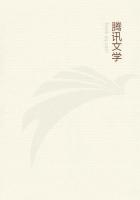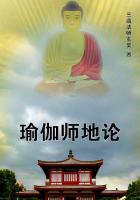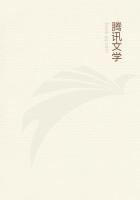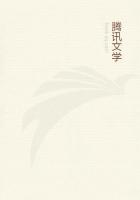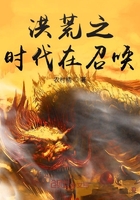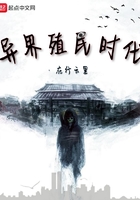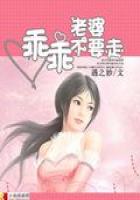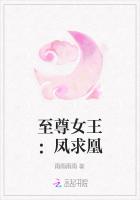Some one said that Captain Tushin was close by here in the village, and that he had already been sent for.
“Oh, but you went there,” said Prince Bagration, addressing Prince Andrey.
“To be sure, we rode there almost together,” said the staff-officer, smiling affably to Bolkonsky.
“I had not the pleasure of seeing you,” said Prince Andrey, coldly and abruptly. Every one was silent.
Tushin appeared in the doorway, timidly edging in behind the generals’ backs. Making his way round the generals in the crowded hut, embarrassed as he always was before his superior officers, Tushin did not see the flag-staff and tumbled over it. Several of the officers laughed.
“How was it a cannon was abandoned?” asked Bagration, frowning, not so much at the captain as at the laughing officers, among whom Zherkov’s laugh was the loudest. Only now in the presence of the angry-looking commander, Tushin conceived in all its awfulness the crime and disgrace of his being still alive when he had lost two cannons. He had been so excited that till that instant he had not had time to think of that. The officers’ laughter had bewildered him still more. He stood before Bagration, his lower jaw quivering, and could scarcely articulate:
“I don’t know … your excellency … I hadn’t the men, your excellency.”
“You could have got them from the battalions that were covering your position!” That there were no battalions there was what Tushin did not say, though it was the fact. He was afraid of getting another officer into trouble by saying that, and without uttering a word he gazed straight into Bagration’s face, as a confused schoolboy gazes at the face of an examiner.
The silence was rather a lengthy one. Prince Bagration, though he had no wish to be severe, apparently found nothing to say; the others did not venture to intervene. Prince Andrey was looking from under his brows at Tushin and his fingers moved nervously.
“Your excellency,” Prince Andrey broke the silence with his abrupt voice, “you sent me to Captain Tushin’s battery. I went there and found two-thirds of the men and horses killed, two cannons disabled and no forces near to defend them.”
Prince Bagration and Tushin looked now with equal intensity at Bolkonsky, as he went on speaking with suppressed emotion.
“And if your excellency will permit me to express my opinion,” he went on, “we owe the success of the day more to the action of that battery and the heroic steadiness of Captain Tushin and his men than to anything else,” said Prince Andrey, and he got up at once and walked away from the table, without waiting for a reply.
Prince Bagration looked at Tushin and, apparently loath to express his disbelief in Bolkonsky’s off-handed judgment, yet unable to put complete faith in it, he bent his head and said to Tushin that he could go. Prince Andrey walked out after him.
“Thanks, my dear fellow, you got me out of a scrape,” Tushin said to him.
Prince Andrey looked at Tushin, and walked away without uttering a word. Prince Andrey felt bitter and melancholy. It was all so strange, so unlike what he had been hoping for.
“Who are they? Why are they here? What do they want? And when will it all end?” thought Rostov, looking at the shadowy figures that kept flitting before his eyes. The pain in his arm became even more agonising. He was heavy with sleep, crimson circles danced before his eyes, and the impression of these voices and these faces and the sense of his loneliness all blended with the misery of the pain. It was they, these soldiers, wounded and unhurt alike, it was they crushing and weighing upon him, and twisting his veins and burning the flesh in his sprained arm and shoulder. To get rid of them he closed his eyes.
He dozed off for a minute, but in that brief interval he dreamed of innumerable things. He saw his mother and her large, white hand; he saw Sonya’s thin shoulders, Natasha’s eyes and her laugh, and Denisov with his voice and his whiskers, and Telyanin, and all the affair with Telyanin and Bogdanitch. All that affair was inextricably mixed up with this soldier with the harsh voice, and that affair and this soldier here were so agonisingly, so ruthlessly pulling, crushing, and twisting his arm always in the same direction. He was trying to get away from them, but they would not let go of his shoulder for a second. It would not ache, it would be all right if they wouldn’t drag at it; but there was no getting rid of them.
He opened his eyes and looked upwards. The black pall of darkness hung only a few feet above the light of the fire. In the light fluttered tiny flakes of falling snow. Tushin had not returned, the doctor had not come. He was alone, only a soldier was sitting now naked on the other side of the fire, warming his thin, yellow body.
“Nobody cares for me!” thought Rostov. “No one to help me, no one to feel sorry for me. And I too was once at home, and strong, and happy and loved,” he sighed, and with the sigh unconsciously he moaned.
“In pain, eh?” asked the soldier, shaking his shirt out before the fire, and without waiting for an answer, he added huskily: “Ah, what a lot of fellows done for to-day—awful!”
Rostov did not hear the soldier. He gazed at the snowflakes whirling over the fire and thought of the Russian winter with his warm, brightly lighted home, his cosy fur cloak, his swift sledge, his good health, and all the love and tenderness of his family. “And what did I come here for!” he wondered.
On the next day, the French did not renew the attack and the remnant of Bagration’s detachment joined Kutuzov’s army.


